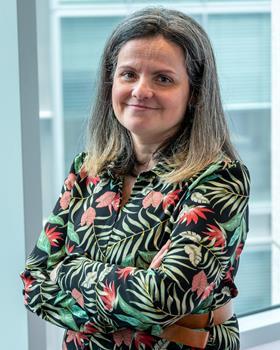Join us on June 27 to learn how change agents at Johnson Matthey developed a coalition of support for data-driven science
Click the button below to register
Data analytics is increasingly playing an imperative role in the move toward digitalisation in chemistry. Statistical approaches dramatically reduce research timelines and enable chemists to achieve higher quality outcomes with fewer resources. Despite overwhelming consensus around the promise of digitalisation, however, organisations that most stand to benefit from these approaches have often struggled with how to get started.
On one hand, bench scientists who see the value in making experiments leaner, faster and more reproducible have faced pushback from leaders struggling to translate buzzwords like ‘AI’ and ‘robotics’ into action. On the other, leadership heavily invested in the digital future of scientific discovery must contend with the real needs of scientists for training in modern statistical methods and access to the tools needed to put those methods into practice.
This one-hour, interactive webinar offers rare insight into how chemists and scientific leaders can more effectively work together to build consensus and lay the foundations for digital chemistry’s implementation. In a frank and thought-provoking conversation, Director of the Johnson Matthey Technology Centers Elizabeth Rowsell, Research manager Stephen Poulston and Research scientist Pilar Gómez Jiménez will reflect on their own company’s internal conversations, challenges and digitalisation process. JMP’s Phil Kay will also feature, helping to add context from his many years of experience.
A change agent and advocate for statistical enablement within the company’s R&D organisation, Gómez Jiménez built a compelling and actionable case for the adoption of data-driven approaches like Design of Experiments (DoE) that ultimately won Rowsell’s backing. With her visionary involvement in initiatives like the Royal Society of Chemistry’s Digital Futures report, Rowsell has long been a proponent of new frontiers in science. Her leadership role within the multinational specialty chemicals and sustainable technologies industry has also afforded her a nuanced and experienced perspective on evaluating the needs of a scientific workforce moving toward a nimbler approach to experimentation.
Join us for a candid conversation about mechanisms and strategies for putting digital chemistry into practice. Whatever your role in the digital chemistry process, and however large or small your organisation, everyone stands to benefit from participating in this timely discussion.

Elizabeth Rowsell

Pilar Gómez Jiménez

Stephen Poulston

Phil Kay

JMP produces interactive software for desktop statistical discovery. Pronounced “jump,” its name suggests a leap in interactivity, a move in a new direction. John Sall, SAS co-founder and Executive Vice President, created this dynamic software and remains its chief architect and leader of the JMP division. Introduced in 1989 with scientists and engineers in mind, JMP has grown into a family of statistical discovery products used worldwide in almost every industry. From its beginnings, JMP software has empowered its users by enabling interactive analytics on the desktop.












